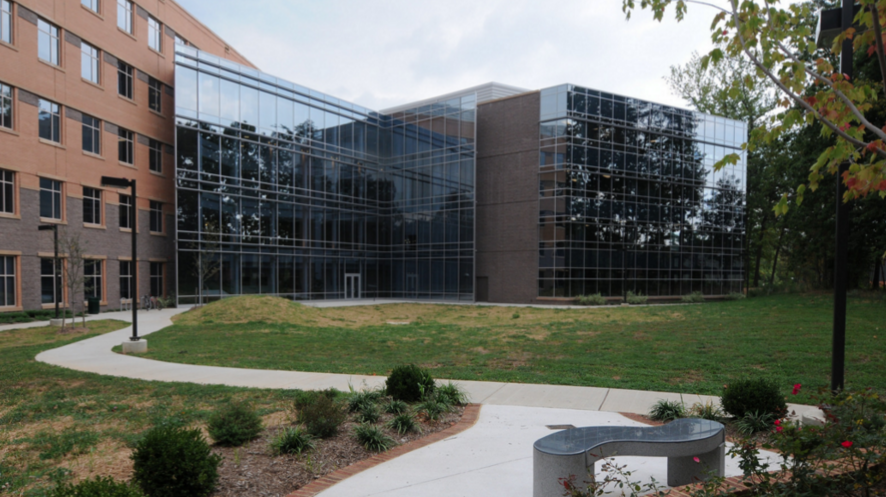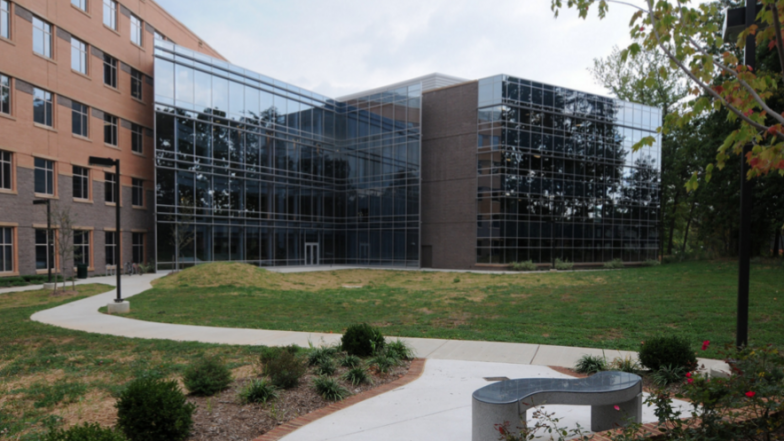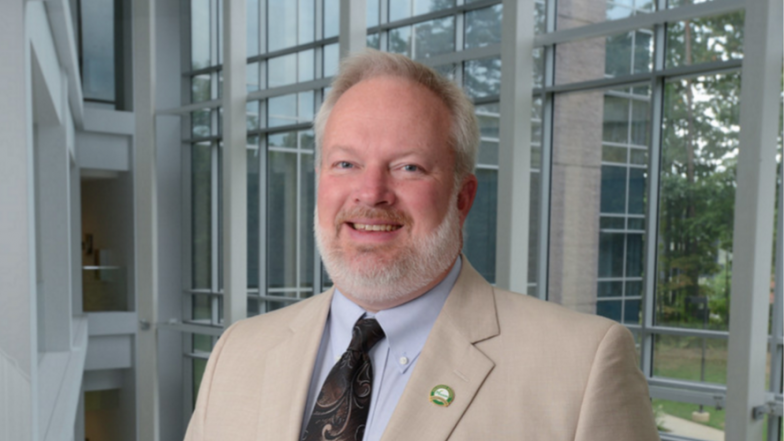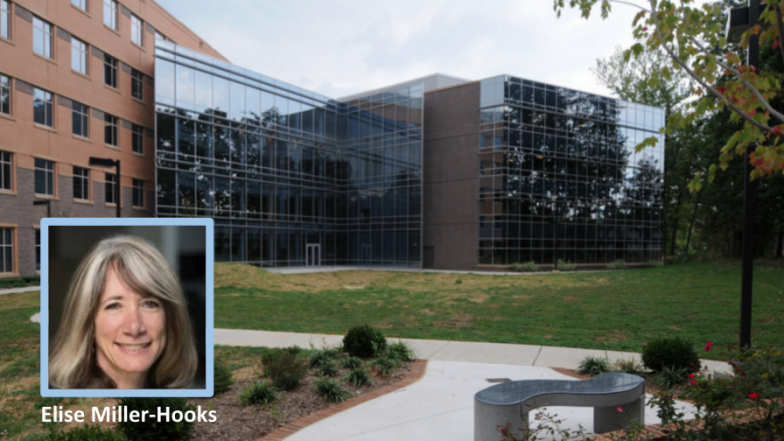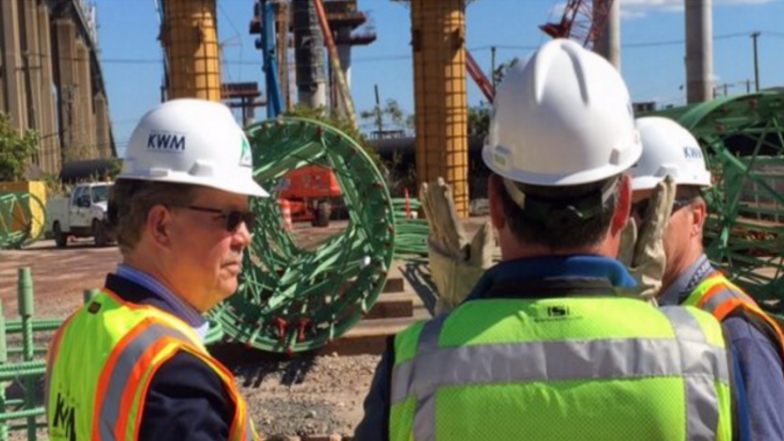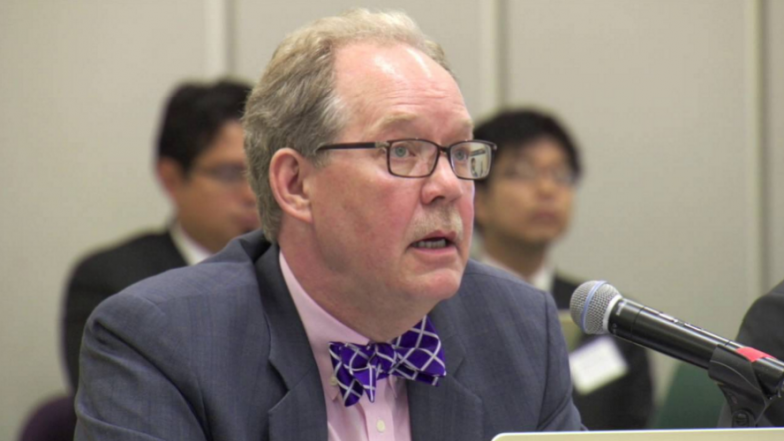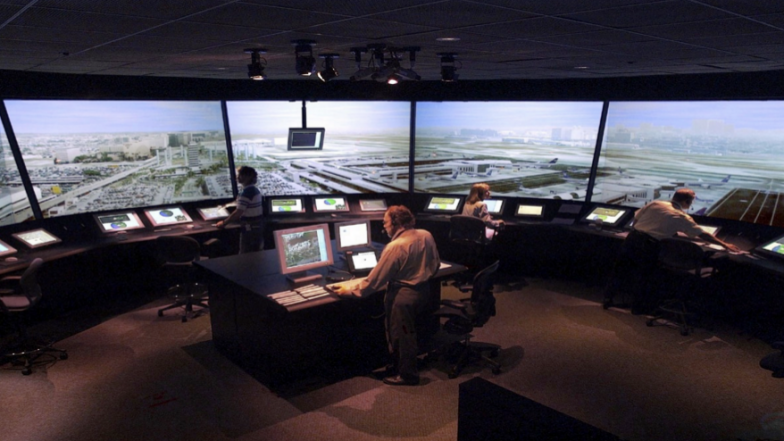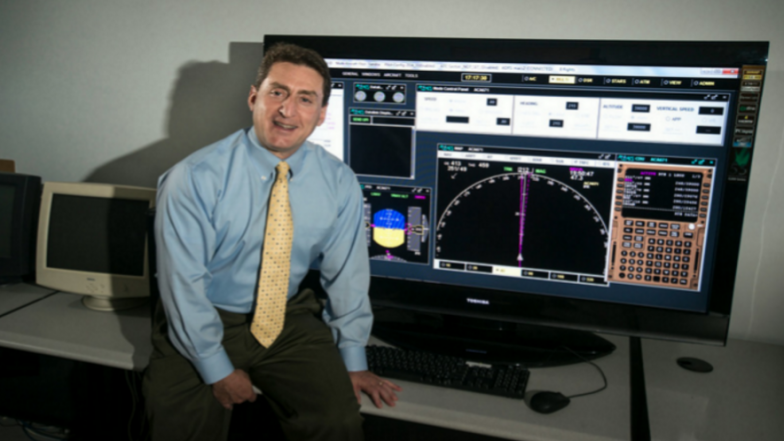Information
Website: volgenau.gmu.edu/
Phone: 703-993-1000
Address: George Mason University
4400 University Drive
Fairfax, Virginia 22030
Annual Reports
Losing the Secret and Keeping the Best
For years the Volgenau School of Engineering was touted as Northern Virginia’s “best kept secret.” As part of an ongoing effort to lose the secret and keep the best, the school published its first Annual Report in 2014. The publications tell the story of the school through narratives and numbers in seven thematic areas: data analytics, cyber security, sustainability, robotics, health care technologies, signals and communications, and global outreach. Each theme spans departmental and disciplinary boundaries and captures the depth and breadth of the work of the school’s faculty and students.
Annual Report 2016
Made at Mason
|
In this annual report, you will see examples of research, teaching and scholarship. Embedded into these stories are some of the relationships, memories, and careers that are all made at Mason. Read our annual report and learn about what we are making at Mason, and how Mason is making a difference. |
Annual Report 2015
30 Years: Then and Now
|
This report commemorates yesterday’s milestones and highlights today’s accomplishments. The visionaries who saw the need for a school of information technology in 1985 would be proud of our 30-year record of accomplishments. |
Annual Report 2014
Engineering a Better World
|
This inaugural annual report tells the story of the Volgenau School of Engineering through narratives and numbers in six thematic areas, which we call our areas of expertise. Some themes are well established, while others are still emerging, but each spans departmental and disciplinary boundaries and captures the depth and breadth of the work of the school’s faculty and students.
DepartmentsThe Volgenau School of Engineering provides students with well-rounded education, research, and professional development. Our eight departments work cooperatively to build unique and timely programs, including several interdisciplinary degrees. BioengineeringVolgenau’s Department of Bioengineering seeks to advance knowledge in the field through research and the education of future specialists with challenging, yet rewarding undergraduate and graduate programs. Bioengineering is an interdisciplinary field that integrates engineering, biology, and medicine to promote scientific discovery, new technology, and medical therapies to improve health. Today’s research also goes small, into such fields as nanotechnology. Volgenau is creating partnerships with biomedical organizations in the Washington, D.C., area to forge research collaborations and to expand training and internship opportunities for Mason students. The Bioengineering Department includes primary faculty members, as well as affiliate faculty from the Electrical and Computer Engineering Department and Computer Science Department. Our expertise in Robotics and Health Care Technology fosters a connection between mechanical devices and the people who will use them to walk, run, sit, stand, and see. Our commitment to Globalization provides unique learning opportunities for our students through Engineering World Health (Guatemala) and Carlos III University (Madrid, Spain). Our areas of research include:
Burak Tanyu, Assistant Professor of Geotechnical and Geological Engineering, has worked on landslide forensic analyses, earth retention system designs, design and permitting of residual waste landfills, and seep investigation and embankment stability. Since 2008, he has been a National Highway Institute certified instructor teaching design of earth retaining structures. Civil, Environmental, and Infrastructure EngineeringVolgenau’s Sid and Reva Dewberry Department of Civil, Environmental and Infrastructure Engineering is an internationally recognized program that educates visionary students to lead in the development of sustainable cities. Our faculty and students seek innovative solutions to construct energy-efficient and environmentally informed buildings, transit systems, utilities, and infrastructure through the use of sustainable materials and renewable resources. The nation relies on a vast network of infrastructure systems which are becoming more interdependent as urban areas grow and increase. Infrastructure based on sound, sophisticated civil engineering principles, and technology-based best practices ensures that the water we drink is safe, that the bridges we cross are solid, and that our transportation systems take us to school and into space. CEIE aims to develop and implement successful solutions to complex, multi-disciplinary engineering challenges. Our expertise in Sustainable Infrastructure is helping to improve existing cities, towns and villages while imagining future improvements. Our student members and faculty sponsors of Engineers for International Development share our commitment to Globalization through their annual efforts to provide clean, safe drinking water to remote villages in Nicaragua.
Computer ScienceVolgenau’s Department of Computer Science features research and scholarship in a field that’s immersed in all aspects of society. We’re firmly in the cyber age, with much of our lives online or in the cloud. No matter where we are, connected digital devices let us shop, bank, pay bills, look for a job, share photos, and communicate with friends and family. Behind the scenes are the programmers, coders and app creators who help us adapt to a constantly changing, yet exciting digital world. Our expertise in Robotics and Health Care Technology uses advanced computer modeling, mapping, and sensor development to improve the functionality of prosthetic limbs. Our focus on Big Data helps companies and organizations make sense of the massive amounts of data generated in the digital age. Our students learn to design and develop software and hardware, working with faculty involved at the forefront of research, including:
Electrical and Computer EngineeringVolgenau’s Department of Electrical and Computer Engineering blends electrical and electronic studies and research to develop, design and operate computers, machines, hardware, and software. Our students will be the ones who make computers smaller, but mightier — they’ll do more and they’ll do it faster and cheaper. Volgnenau’s experiential learning process includes a Capstone Project, an advanced design enterprise. Groups conceive, design, and implement a hardware project or hardware-related software project, considering all engineering aspects. ECE faculty and students are also involved in innovative research in a variety of areas, such as bioengineering, cryptography and network security, medical imaging, nanotechnology, ocean acoustic tomography, and wireless communications. ECE faculty at Mason have funding from several major agencies, including the National Science Foundation, the Office of Naval Research, the National Institute of Standards and Technology, and the National Institutes of Health. Our expertise in Big Data and Health Care Technology lets our graduates build tools for teachers to accurately measure learning styles, and our labs prepare predictive models that can help emergency personnel manage a disease outbreak. Our work in Cyber Security helps protect services we depend on, such as utilities, transportation, and defense, while our focus on Robotics takes the next steps in human technology. Our work in Signals and Communciation focuses on transmitting, receiving, and processing complex patterns of information efficiently and securely through expertly engineered communication systems.
Information Sciences and TechnologyVolgenau’s Department of Information Sciences and Technology immerses students in both the theory and the practice of storing, retrieving and using information while enabling digital systems and people to communicate with each other. Our programs are uniquely positioned to prepare graduates for career success, as their skills will become indispensable in whatever field they choose. No industry is untouched by the need for IST professionals; every company, group, and organization has a database. Students don’t learn in a vacuum: Our faculty’s research interests include cybersecurity, learning analytics, data mining, networking and telecommunications, and educational outreach. Our expertise in Cyber Security comes to the fore as we manage security clearances for more than a hundred research faculty whose funded work supports the FBI, Department of Defense, and Department of Homeland Security. Our experience in Big Data involves such projects as developing a data ecosystem to link engineering education and data-sharing cyber infrastructure to understand the culture of data creation, exchange, and use.
Mechanical EngineeringVolgenau’s Department of Mechanical Engineering students seek innovative solutions to meet the growing demands of worldwide energy needs spurred by population growth and dwindling supplies of fossil fuels. Our graduates oversee the operations and management of large systems in nuclear energy, biofuels, wind, and tidal energies to build an energy portfolio that exploits these seemingly limitless resources. Mechanical engineers must also have an awareness of risks due to cyber threats. Our expertise in Sustainable Infrastructure lets us build solar-powered machinery, and our Cyber Security focus makes us an incubator for the newest networks and systems.
StatisticsVolgenau’s Department of Statistics provides training in the collection, analysis, and interpretation of data from all sources. Major research areas include biostatistics (the application of statistics to medical research); data analytics, visualization and data exploration, data confidentiality, social networking, and statistical computing. Data are present in all aspects of industry and government, and we provide our students the technical expertise to design studies and analyze data in a way to minimize bias and error. Data analytics involves massive data sets, and and our faculty have expertise in data reduction, visualization, data mining, and interpretation. The Department is planning a B.S. in Statistics to begin Fall 2017.
Systems Engineering and Operations ResearchVolgenau’s Department of Systems Engineering and Operations Research offers students the “people-oriented engineering profession.” Systems engineers determine the most effective ways for an organization to use all a system’s components — people, machines, materials, information, and energy. Systems engineers plan, design, implement and manage complex systems that assure performance, safety, reliability, and maintainability at a reasonable cost and delivered on time. Operations Research deals with the use of scientific methods in management decision making, especially for the best allocation of limited resources. Operations researchers try to find order in apparent chaos by identifying the structure in complex situations and understanding how the components or organizations interact. They can then explain and predict the effect of actions on these systems. Our expertise in Big Data and Health Care Technology let us determine the most effective ways for an organization to use all a system’s components — people, materials, information, and energy — using scientific methods to allocate resources. Our areas of research include:
VideosStudents’ extinguish fire with sound wavesPublished on Apr 7, 2015 | Electronic Products Magazine Two George Mason University students, one a computer engineering major, the other an electrical engineering major, have created a new piece of technology that uses sound to extinguish fires.. Viet Tran, the computer engineer, and Seth Robertson, the electrical engineer, have figured out how to use sound waves to put out fires. They started out with the simple idea that sound waves are also mechanical or pressure waves — this is due to the back and forth motion of the medium in which they pass through). As such, they can cause an impact, if you will, on objects in their path. https://www.youtube.com/watch?v=w9QCh73JC1k Mixed Reality in EngineeringPublished on Jan 1, 2017 | GMU EfID The GMU-EFID engineering students are using mixed reality to support their designs. Augmented Reality technology provides an intuitive user interface for engineering support systems, increasing productivity and decreasing the chances of operation errors in engineering tasks. My Mason Story: AmeliaPublished on Jul 22, 2013 | George Mason University Amelia is a civil engineering student in the Volgenau School of Engineering. This is one of six in a video series highlighting unique Mason students and their stories. The videos were developed, written, edited and produced by undergraduate and graduate students in communication professor Cindy Lont’s Visual Communication course. https://www.youtube.com/watch?v=xXXPkB65oSY Volgenau School of Engineering Convocation 2016Published on May 25, 2016 | GMUTelevision
|
